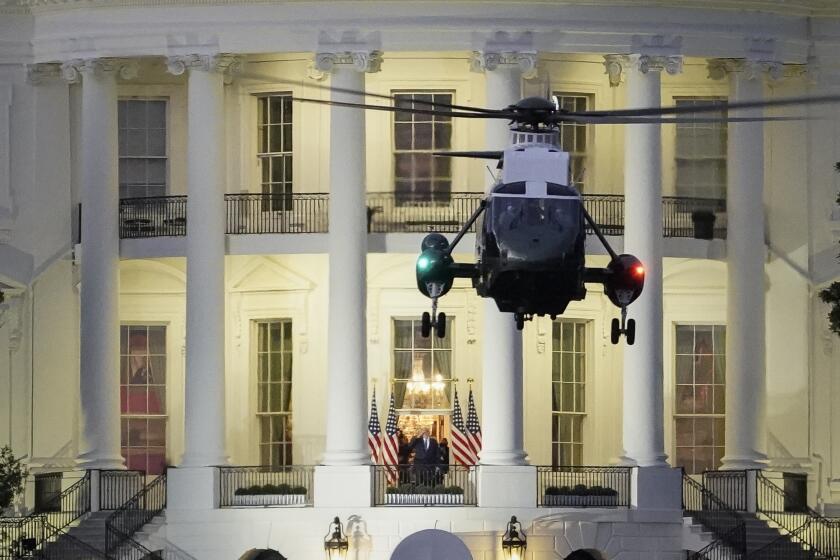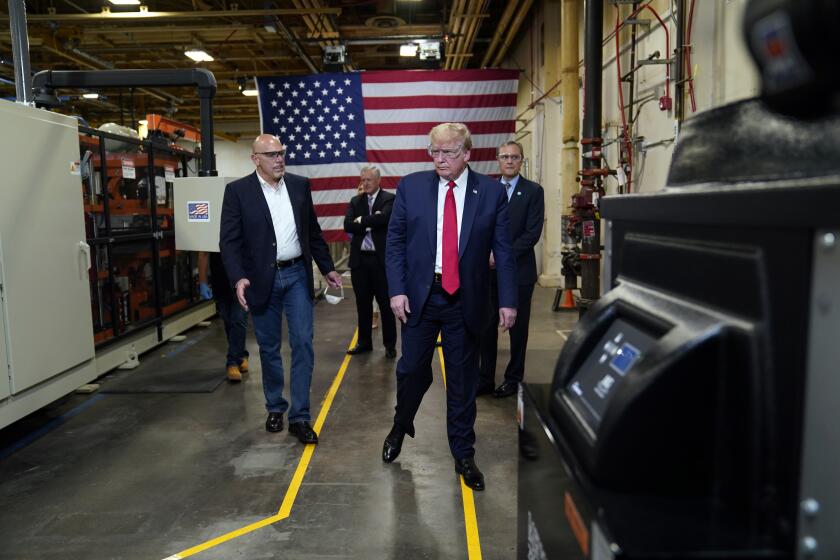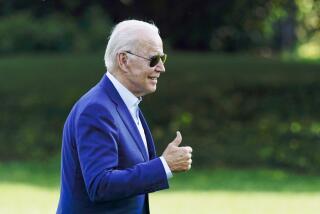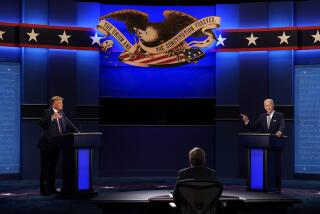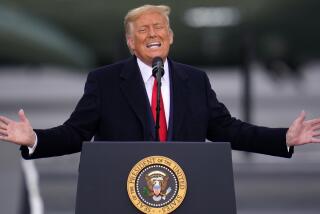Even sick with COVID-19, Trump refuses to change tune on pandemic
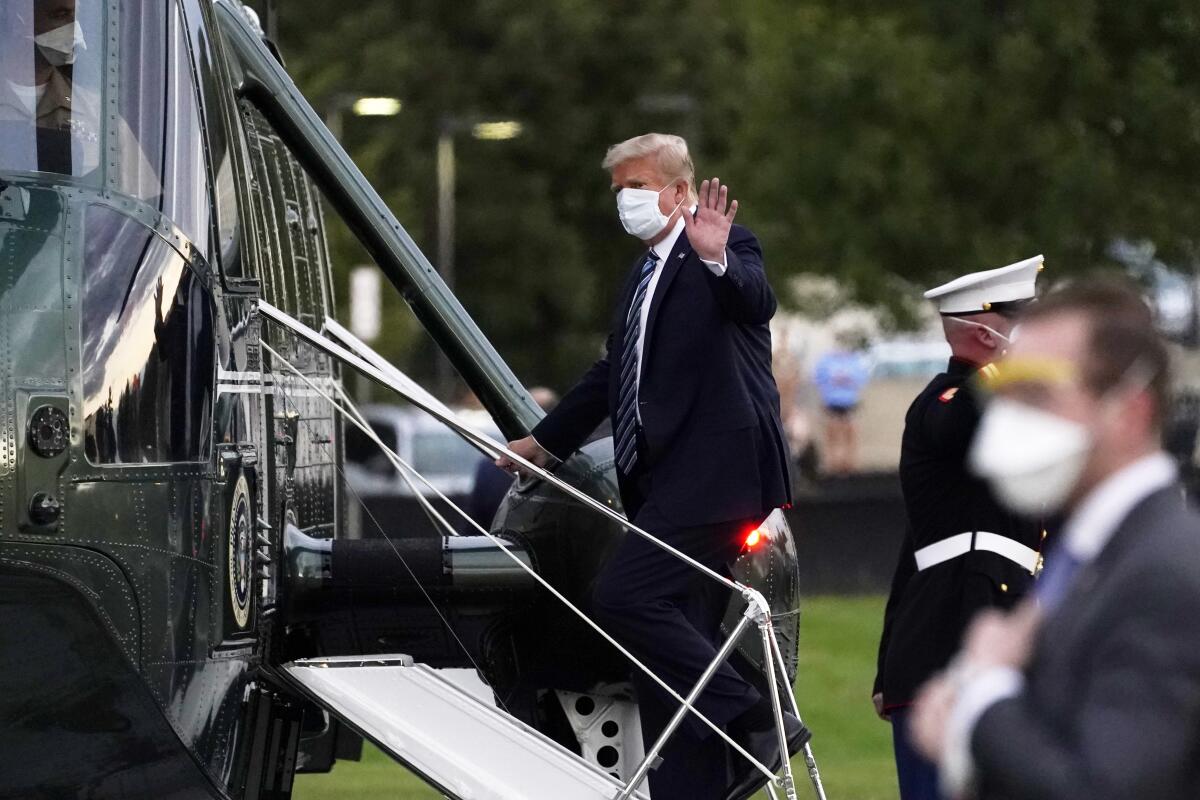
WASHINGTON — After months of falsely comparing the coronavirus to the flu, downplaying its danger and flouting rules intended to limit its spread, President Trump insisted he finally understands the pandemic now that doctors are aggressively treating him for COVID-19.
“I learned a lot about COVID,” Trump said in a video recorded Sunday from his hospital suite. “I learned it by really going to school. This is the real school.”
“I get it. I understand it,” Trump added.
There’s no evidence that he actually does.
Instead, the 74-year-old president boasted that he feels “better than I did 20 years ago” as he tweeted his planned departure on Monday evening from the Walter Reed National Military Medical Center, where he had been hospitalized since Friday.
“Don’t be afraid of Covid,” he tweeted. “Don’t let it dominate your life.”
Even as Trump tried to turn the tale of his illness into a parable about his personal strength and dedication to the country, he said nothing about the 210,000 Americans who have died of COVID-19 since last spring, and the 7.4 million infected so far — including more than 100,000 since Friday.
Nor did Trump express sympathy for the dozen or more senior advisors, campaign officials and Republican lawmakers who have contracted the virus since last week, when the White House became the latest hot spot for the disease.
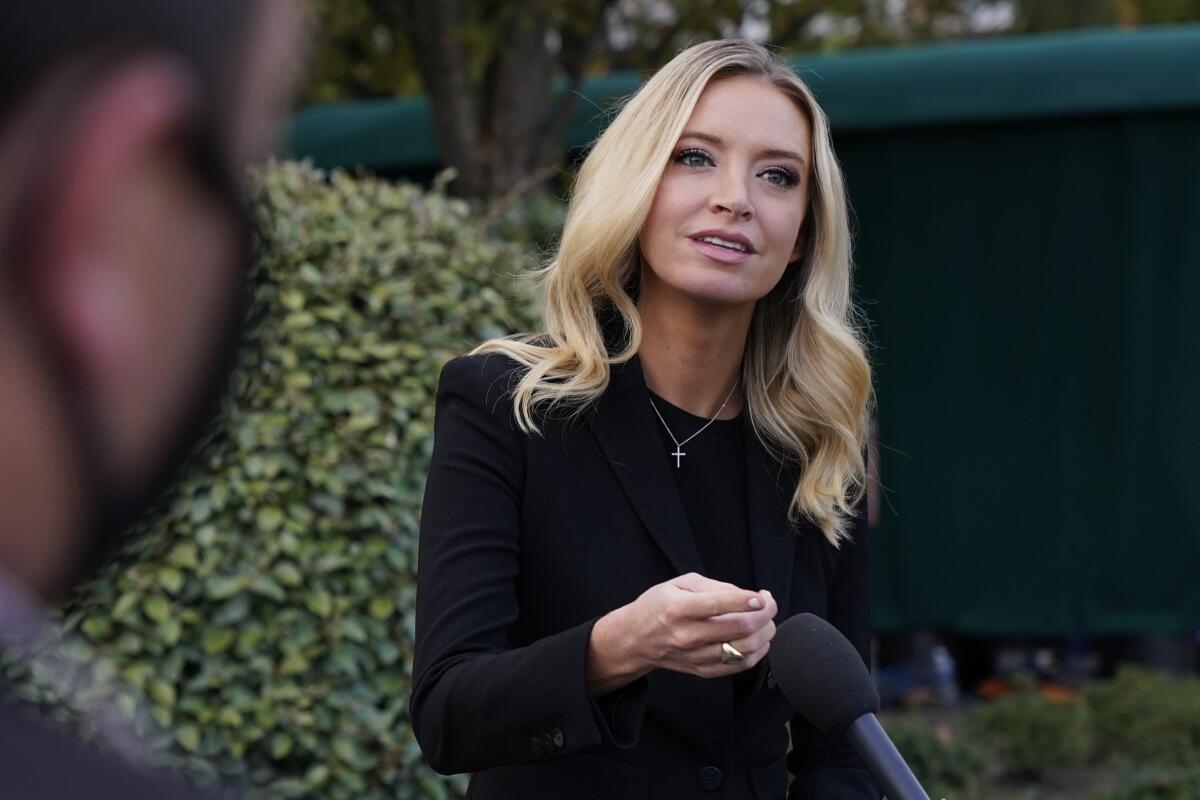
Although he is still contagious, Trump gave no hint how long he will remain in isolation at the White House to avoid spreading the virus. Nor did he acknowledge that his experience with COVID-19 has been unique — airlifted to one of the nation’s best hospitals, treated with experimental drugs not available to the public and a team of doctors on 24-hour call back at the White House.
He remains uncommitted to wearing a mask. He wore one for the helicopter flight home on Monday, but he took it off when he arrived at the White House even though his staff has been struggling to stave off infections.
Olivia Troye, a former aide to the White House’s coronavirus task force who has become a sharp critic of the president, said Trump’s attitude only increases the danger for other Americans.
Trump pronounces himself fit, as his press secretary, Kayleigh McEnany, and other members of his team announce they’ve tested positive for the coronavirus.
“My greatest fear is that he would use this as an opportunity to continue downplaying the severity of this virus,” she said. “And we’re seeing that play out.”
House Speaker Nancy Pelosi (D-San Francisco) told MSNBC that she hoped Trump would treat his hospitalization as “a learning experience” and “a transition to a saner approach” to the pandemic.
But Trump doesn’t do learning experiences.
Since taking office, he has not changed his behavior despite tectonic personal and political events — impeachment, natural disaster, domestic terrorism, economic recession, deadly pandemic. Not even contracting a potentially deadly disease appears to have chastened him, or made him more concerned about the health of others.
As COVID-19 deaths keep rising, Trump’s message has shifted from ‘one is too many’ to praising Americans as warriors fighting to open the economy.
Shortly after recording his video claiming he “learned a lot” about the virus, the infectious commander-in-chief climbed into a sealed armored SUV with Secret Service agents covered in protective gear so he could wave at supporters outside the hospital.
Before falling ill, Trump ignored federal guidelines on wearing masks and social distancing. He urged his supporters and staff to follow his lead, and even mocked those who insisted on taking precautions.
He does not appear to be any more cautious now.
With election day a month away, he’s eager to return to the campaign trail in hopes of salvaging a reelection bid that may hang on whether voters believe he has adequately protected the country in a pandemic when he could not protect his own White House.
“I think I’ll be back soon,” he said in another video. “I look forward to finishing up the campaign the way it was started and the way we’ve been doing, the kind of numbers that we’ve been doing.”
Public health experts have said it’s exactly those kinds of events — packing thousands of supporters together, mostly without masks and sometimes even indoors — that could spread the virus.
Jeffrey Levi, a George Washington University public health professor, said Trump’s triumphant tone about leaving the hospital was “incredibly irresponsible” and a “dangerous message.”
“No one should want this disease. No one should treat this disease lightly,” Levi said. “He is undermining the public’s confidence in each of the steps we should be taking to protect ourselves so we don’t have to go through what he went through.”
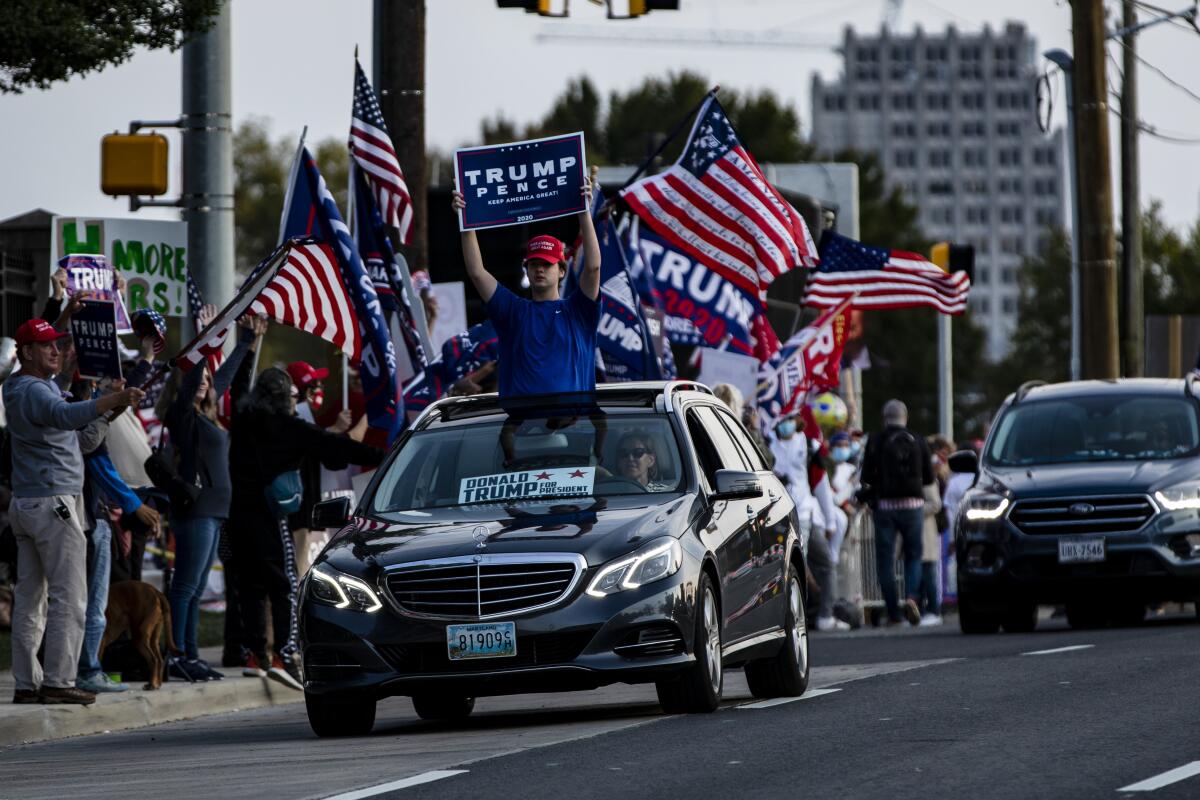
Jason Miller, a campaign advisor, told CNN on Sunday that Trump had asked him to tell people to “be careful.”
“Wash your hands. Use hand sanitizer. If you can’t socially distance, wear a mask,” Miller said.
None of that advice came directly from the president. On Monday he tweeted campaign messages and media criticism but nothing about public health guidelines.
Trump’s campaign went so far as to portray his ability to get hospitalized with COVID-19 as a plus in his race against former Vice President Joe Biden.
“He has experience as commander in chief. He has experience as a businessman. He has experience — now — fighting the coronavirus as an individual,” campaign spokeswoman Erin Perrine told Fox News on Monday. “Those firsthand experiences, Joe Biden, he doesn’t have those.”
Trump’s experience with COVID-19, of course, was not typical. He is tested regularly at the White House, and when his condition worsened on Friday, was given oxygen and then helicoptered to Walter Reed.
It’s an extreme form of the privilege that has surrounded Trump his entire life.
“If you spend 74 years in that dynamic, you’re not going to know how to change, you’re not going to be inclined to change,” said Michael D’Antonio, who wrote a critical biography of Trump and is writing another book about his impeachment. “No matter how much other people suffer.”
Once Trump is back at the White House, he could be contagious for up to 10 days, according to the Centers for Disease Control and Prevention.
Medical experts said staff who serve him in the residence probably will need protective gear. If he goes to the Oval Office, he risks shedding the virus in the West Wing, where White House staff work in cramped offices and few wore masks until recently.
But D’Antonio said Trump probably won’t be concerned.
“He can only be the executive producer of his reality show that is his life,” he said. “And now all the extras are getting sick.”
More to Read
Get the L.A. Times Politics newsletter
Deeply reported insights into legislation, politics and policy from Sacramento, Washington and beyond. In your inbox three times per week.
You may occasionally receive promotional content from the Los Angeles Times.
